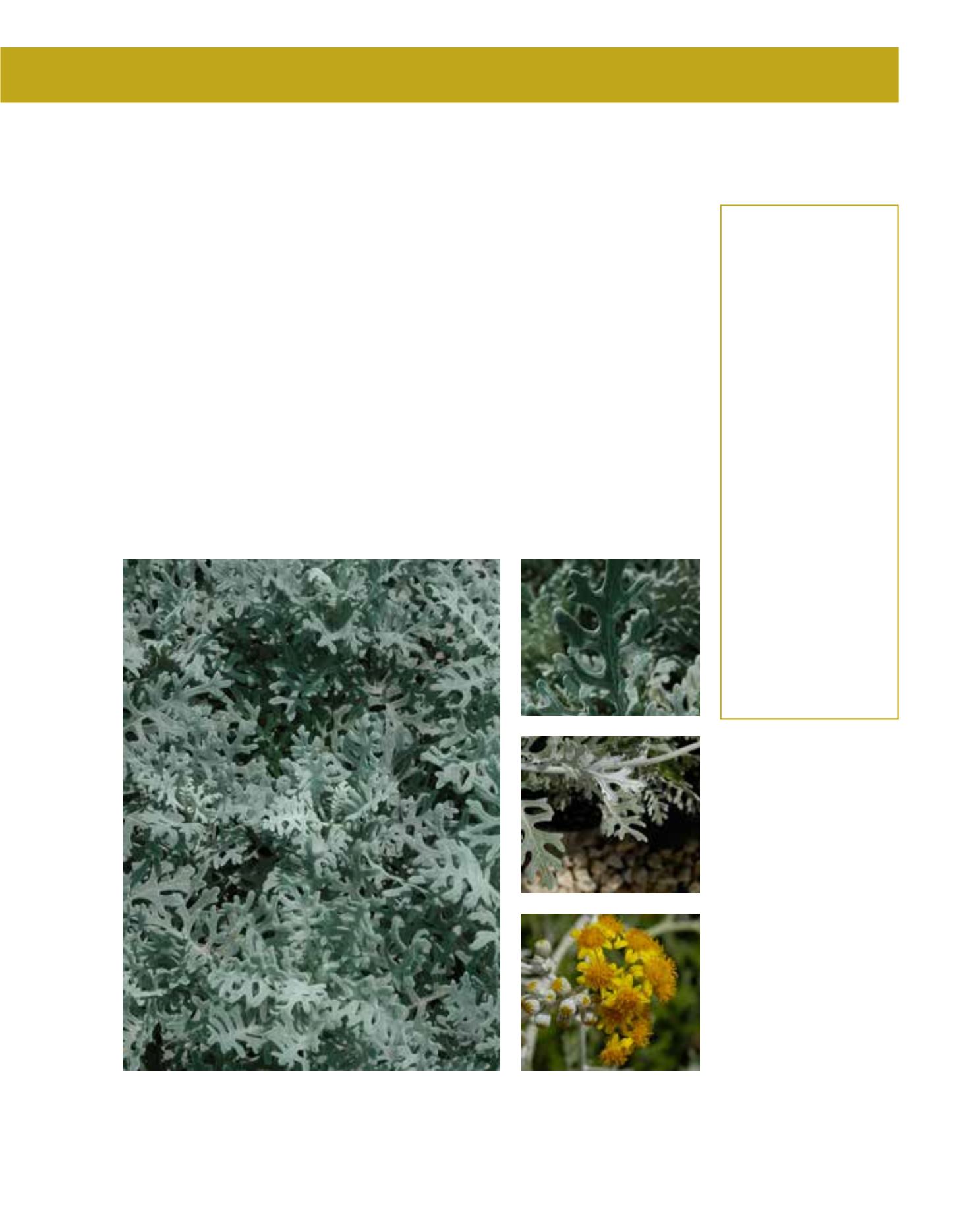

GENERAL
Origin
:
Mediterranean
Vigour
:
slow-growing
Humidity
:
semi-arid, semi-
humid, very
humid
Propagation :
cuttings
Maintenance :
low
CONDITIONS
Urban climate :
resistant
Dessication :
resistant
Stagnant water :
vulnerable
Irrigation
:
medium
Salinity/ppm :
moderate (1800
ppm)
Hardiness
:
-6°C
SHAPE
Type
:
perennial,
biennial
Height
:
0.15 m-1 m
Spread
:
0.15 m-1.4 m
Foliage
:
deciduous
FLOWER
Colour
:
yellow
Size
:
1.2 cm - 1.5 cm
Period
:
April - June
FRUIT
Type of fruit :
achene
Fruit size
:
0.4 cm
A useful, drought-tolerant perennial with evergreen (or rather ever-grey) foliage, its serrated, pin-
nately cut leaves make the Dusty Miller interesting in rock gardens as well as creating a bright
contrast in plant beds. It grows wild along the Mediterranean coast, from where it has a resistance
to salinity. To keep it neat and tidy, it should be cut back by the end of winter, and if necessary by
mid-summer, to remove the faded flowers. These are not produced during the first year; however,
they are insignificant, and by no means what the plant is grown for. Low humidity is no problem
and a little frost is tolerated without any damage. If neglected, the plants may become leggy in
time and require cutting back to grow new attractive shoots. A variety called ’Silverdust’ is more
compact and has silvery-white leaves. It also has fewer flowers than the species. Propagation is
very easy, from cuttings. The stems are stiff and branch from the base. They make excellent cut-
tings for propagating the plant quickly. Dusty Millers do well in well-drained soil with frequent
irrigation. Deep rooting allows established plants to tolerate some drought. Under ideal condi-
tions, they may reach 1 metre in height and 1.4 metres in width, but in Arriyadh, where they are
to be seen in both private gardens and public open spaces, these woody perennials remain about
half this size. Pinching helps the plant to grow more compactly. They have low maintenance
requirements and are pest-free. Wet conditions may cause a fungal infection called rust disease.
278
Senecio cineraria,
Asteraceae
Dusty Miller
















